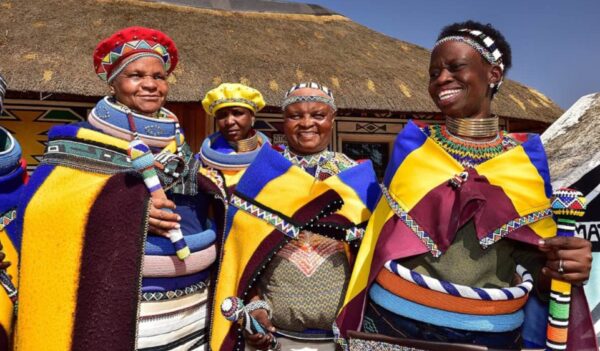
Tucked away in the misty mountains and green valleys of South Africa’s Limpopo Province lives one of the country’s most fascinating and mysterious cultures—the Venda tribe.
While many cultures celebrate rites of passage and pay homage to ancestors, the Venda take tradition to a whole new level.
From dancing like pythons to greeting lakes backwards, some of their customs might seem downright weird to outsiders—but to the Venda, these rituals are sacred and deeply meaningful.
Here are 5 strange and captivating traditions from the Venda tribe that you probably didn’t know existed.
1. Greeting a Lake by Looking Through Your Legs
Most people admire a beautiful lake by simply standing at its edge. Not the Venda.
To greet Lake Fundudzi, a sacred body of water believed to be inhabited by ancestral spirits, visitors are required to turn their backs to it and view it between their legs.
Why? It’s a ritual of humility and respect, a way of acknowledging that you’re entering a spiritually charged space. Legend says the lake was formed when a cursed village was swallowed by rising waters, and that the lake’s guardian spirits are always watching.
To this day, many locals still refuse to fish, swim, or even walk too close to the lake without performing the proper rituals.
2. The “Python Dance” That Turns Girls Into Women
Forget school dances. In Venda culture, young girls mark their transition into womanhood with the Domba dance, often referred to as the Python Dance.
Here’s how it works:
-
Girls line up in a long, winding row.
-
They move their bodies in sync, mimicking the slither of a snake.
-
The dance is led by an elder woman and accompanied by traditional music.
While the sight might look odd or theatrical, it’s actually a sacred fertility ritual, deeply symbolic of growth, rebirth, and the powerful connection between women and nature.
Only girls who complete this multi-day ceremony are considered ready for marriage.
3. Living With the Dead (Literally)
In Venda belief, the dead never really leave—they live among the living, guiding and sometimes punishing those who forget them.
-
Ancestors are honored with offerings of food, traditional beer, and prayers.
-
Dreams are seen as messages from the other side.
-
Mediums and prophets, known as vhaporofita, are regularly consulted to interpret spiritual signs.
This deep connection to the spirit world influences everything from family decisions to farming. Outsiders might find the rituals eerie, but for the Venda, it’s about balance, protection, and respect for those who came before.
4. A Drum That’s Said to Have Supernatural Powers
Among the Venda royal family exists a legendary artifact: the Ngoma Lungundu, or Drum of the Dead. This ancient drum isn’t just a musical instrument—it’s believed to contain the power of the ancestors.
According to legend:
-
It was used in battles to protect the tribe.
-
If beaten incorrectly, it could bring misfortune.
-
Some even believe it was inspired by the biblical Ark of the Covenant.
The original drum is thought to have been hidden or destroyed, but its legend continues to echo in royal ceremonies and oral history.
5. Pythons Are Sacred, and Killing One Is Taboo
While most people run at the sight of a snake, the Venda see the python as a divine creature—a symbol of rain, fertility, and spiritual protection.
In traditional Venda culture:
-
Killing a python was once punishable by death.
-
Sacred pythons were kept in protected caves or shrines.
-
Priestesses were tasked with caring for them and communicating with their spirit.
Many of the tribe’s most important rituals involve snake symbolism, making this creature one of the most revered animals in Venda mythology.
Final thoughts
From backwards lake greetings to sacred snakes and supernatural drums, the Venda people offer a glimpse into a culture where the spiritual, natural, and everyday worlds are tightly woven together.
To outsiders, these traditions might seem strange—even weird—but to the Venda, they are a source of identity, power, and connection to the divine.
So the next time you think you’ve seen it all, remember: there are cultures like the Venda quietly practicing rituals that have stood the test of time for centuries.
